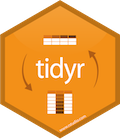Tidy Evaluation

Colin A Gross / @grosscol
Purpose
“The client will be supplying the column specification.”
“I need to use that spec to process the data.”
Example
Data
| Id | Time | Perf |
|---|---|---|
| Alice | 1 | 10 |
| Alice | 2 | 11 |
| Alice | 3 | 11 |
| Bob | 1 | 7 |
| Bob | 2 | 7 |
| Bob | 3 | 9 |
Configuration
"columns": [
{ "datatype": "integer",
"name": "Id"
},
{ "datatype": "integer",
"name": "Time"
},
{ "datatype": "integer",
"name": "Perf"
} Dplyr using known names
df %>%
group_by(Id) %>%
summarise(has_mastery=eval_mastery(Perf)) Result
| Id | has_mastery |
|---|---|
| Alice | TRUE |
| Bob | FALSE |
Try Normal Eval
Assigning column names as variables
id_cols <- c('Id')
perf_cols <- c('Perf')
time_col <- c('Time')Try to use column names stored in variables
mastery_summ <- df %>%
group_by(id_cols) %>%
summarise(eval_mastery(perf_cols))Failure
Error in grouped_df_impl(data, unname(vars), drop) :
Column `id_cols` is unknown
Solution Example
Passing column names as variables
df %>%
group_by_at(.vars=id_cols) %>%
summarise_at(.vars=perf_cols, .funs=eval_mastery) %>%
rename_at(.vars=perf_cols,
.funs=gsub, ".","has_mastery")Results
| Id | has_mastery |
|---|---|
| Alice | TRUE |
| Bob | FALSE |
| Carol | TRUE |
| Dan | TRUE |
| Elaine | TRUE |
Dplyr scoped variants
select(.data, ...) select_at(.tbl, .vars,
rename(.data, ...) rename_at(.tbl, .vars,
group_by(.data, ..., group_by_at(.tbl, .vars, Non-Standard Evaluation
common use case
df %>% group_by(Id)# A tibble: 50 x 3
# Groups: id [5]
id time perf
<chr> <int> <int>
1 Alice 0 15
2 Alice 1 14
Standard Evaluation
does not apply
colname <- "Id"
df %>% group_by(colname)Error in grouped_df_impl(data, unname(vars), drop) :
Column `colname` is unknown
What group_by is doing with …
# group_by method for data.frame
group_by.data.frame <- function(.data, ...,
groups <- group_by_prepare(.data, ...,
group_by_prepare <- function(.data, ...,
new_groups <- c(quos(...), quos()
quos() quotes its arguments and returns them as a list of quosures
Scoped form does not quos() your .vars
group_by_at <- function(.tbl, .vars,
funs <- manip_at(.tbl, .vars, End of Sufficient Explanation
Issue Resolved
Add, Commit, Push
Quosure
R code and Environment
vals <- c(1:5) # [1] 1 2 3 4 5
sum(vals) # 15
ls() # [1] "vals"R code + Environment
library(rlang)
q <- quo(sum(vals))
print(q) # <quosure: global>
# quo(sum(vals))
# ~sum(vals)
eval_tidy(q) # 15Take enclosed environment with them.
foo <- function(x){
vals <- c(1:3)
print(ls()) # "vals" "x"
print(x) # ~sum(vals)
print(sum(vials)) # 6
eval_tidy(x)
}
foo(q) # 15
vals <- c(1:10)
foo(q) # 55Overscope
When data scope comes first
z <- 2 * c(1:5)
x <- "Not even a number."
df <- data.frame(x=c(1:5),y=c(1:5))lm( y ~ x, data=df) # Coefficients:
# (Intercept) x
# 1.192e-15 1.000e+00lm( y ~ z, data=df) # Coefficients:
# (Intercept) z
# 1.192e-15 5.000e-01Same for dplyr
z <- 2 * c(1:5)
x <- c(1:9999)
df <- data.frame(x=c(1:5), y=c(1:5))df %>% summarize(sum(x), sum(y), sum(z))
# sum(x) sum(y) sum(z)
# 1 15 15 30Don't Quote Me
Strings to Symbols
var_name <- "id" # "id"
var_sym <- sym(var_name) # idStill breaks
df %>% group_by( var_sym )
# Error in grouped_df_impl(data, unname(vars), drop)
# Column `var_sym` is unknownUnquoting
Use UQ or !! to unquote an arguement. Evaluated immediately in surrounding context.
df %>% group_by( UQ(var_sym) )
# A tibble: 50 x 3
# Groups: id [5]Equivalent Solutions
df %>%
group_by_at(.vars=id_cols) %>%
summarise_at(.vars=perf_cols, .funs=eval_mastery) %>%
rename_at(.vars=perf_cols,
.funs=gsub, ".","has_mastery")id_sym <- sym(id_cols)
var_sym <- sym(perf_cols)
df %>%
group_by(UQ(id_sym)) %>%
summarise(has_mastery = eval_mastery(UQ(perf_sym)))